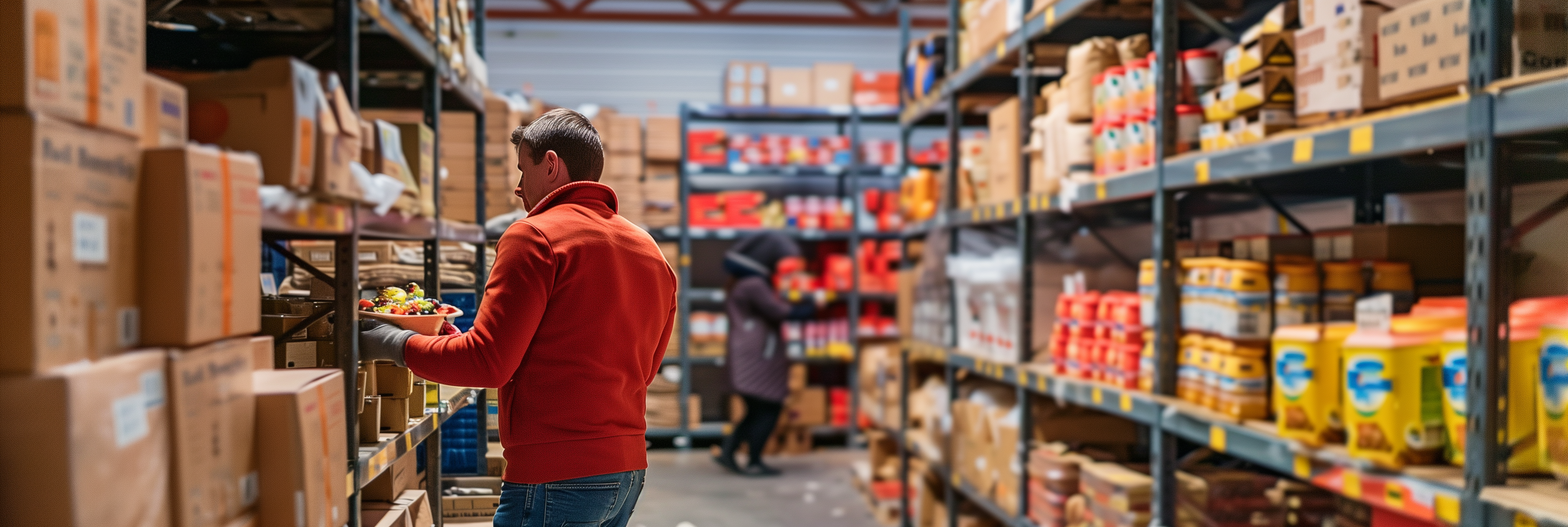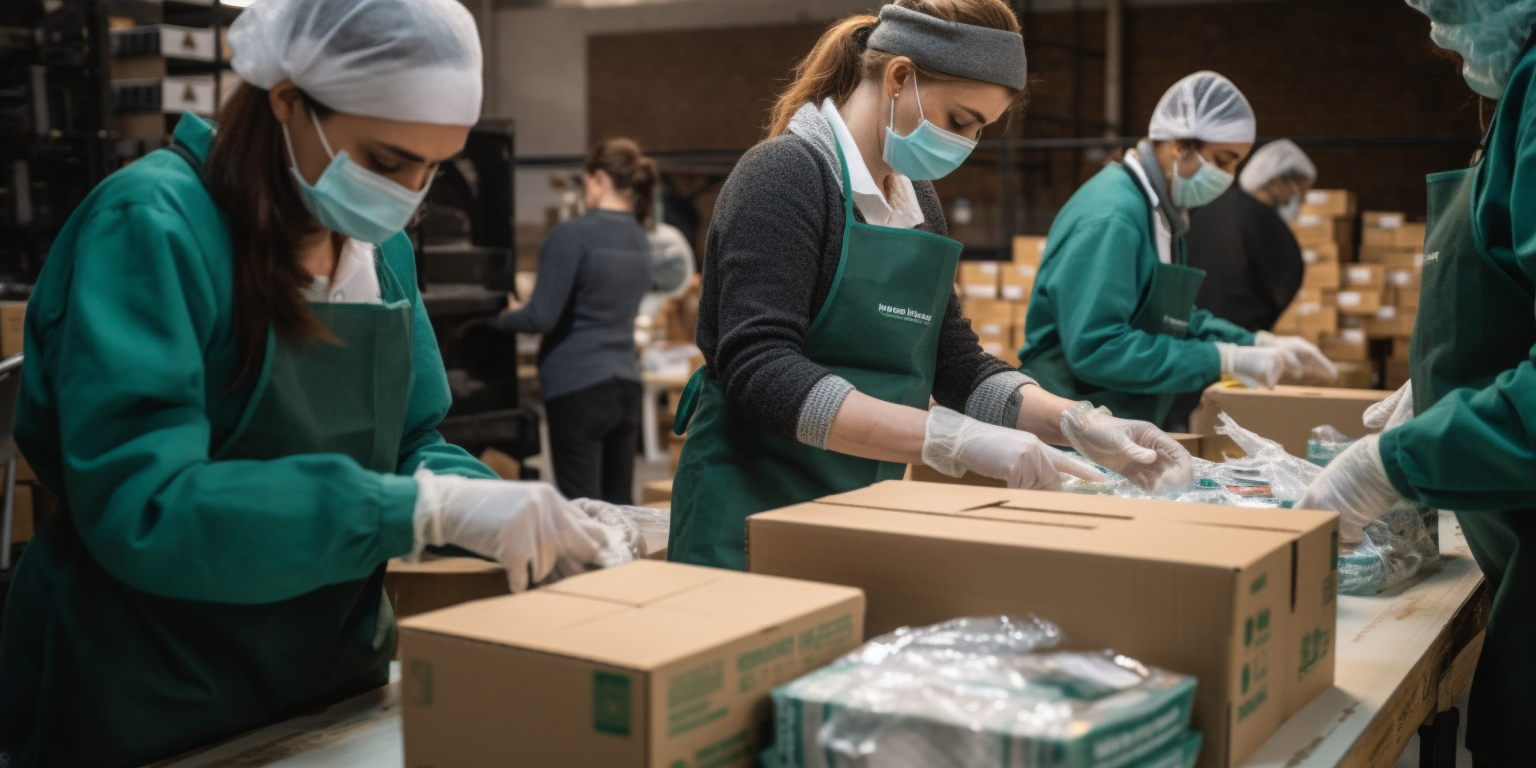
The Role of Emergency Food in the UK's Search and Rescue Operations
The Role of Emergency Food in the UK's Search and Rescue Operations
In the context of search and rescue (SAR) operations in the United Kingdom, the significance of emergency food cannot be overstated. From the rugged highlands of Scotland to the choppy waters surrounding the British Isles, SAR teams work in environments where every second counts and the right nutrition can make all the difference.
- The Landscape of UK Search and Rescue Operations
The UK's SAR framework involves a range of environments – mountainous terrains, urban settings, dense forests, and vast coastal areas. In 2020 alone, the Maritime and Coastguard Agency (MCA), responsible for civil maritime search and rescue, coordinated around 9,000 incidents. Meanwhile, Mountain Rescue England and Wales reported over 2,500 callouts, highlighting the diversity and frequency of SAR operations.
- The Criticality of Nutrition in SAR Operations
Emergency food plays a dual role in SAR operations: sustaining the rescuers and providing life-saving sustenance to the rescued. In SAR operations, the right nutrition can mean the difference between strength and exhaustion, clarity and confusion.
- Nutritional Requirements for SAR Personnel
SAR personnel require food that is high in energy, easy to digest, and quick to consume. The stress and physical demands of SAR operations mean that the body burns calories at a higher rate, necessitating a diet rich in carbohydrates, proteins, and healthy fats. Mountain Rescue teams typically carry rations that provide at least 500-600 calories per meal, essential for maintaining energy during prolonged operations.
- Emergency Food for Survivors
For individuals awaiting rescue, emergency food can be a source of comfort and a critical component for survival, particularly in scenarios where they are stranded for extended periods. High-energy bars, which can provide a quick source of glucose, are a common component in survival kits used in SAR operations.
- Challenges of Delivering Emergency Food
Delivering food to SAR teams and survivors in remote or inaccessible locations is fraught with challenges. Helicopters, often used in mountain and maritime rescues, have limited space and weight capacity.
- Innovations in Emergency Food Technology
The development of compact, high-energy, and nutritious emergency food options has revolutionized SAR operations. Innovations include freeze-dried meals, energy-dense bars, and even self-heating food packs. These meals, which only require the addition of water, have become a game-changer in providing hot, nutritious meals during extended operations.
- Training and Preparedness
SAR teams undergo rigorous training, part of which includes nutrition management. Understanding how to ration and consume emergency food effectively is a critical skill for SAR personnel.
- The Psychological Impact of Food in SAR Situations
Beyond its physical benefits, the presence of food in SAR operations can have a significant psychological impact. For a survivor, receiving food can provide a sense of hope and comfort. "Food not only nourishes the body but also lifts the spirits in dire situations."
- Case Studies of Emergency Food in Action
Several high-profile SAR operations in the UK have underscored the value of emergency food. The 2018 rescue of a group stranded in the Cairngorms saw emergency food playing a vital role in sustaining both the rescue team and the survivors over several hours. During the rescue, energy bars and ready-to-eat meals provided the necessary sustenance to endure the harsh conditions until all individuals were safely evacuated.
- The Future of Emergency Food in SAR
Looking ahead, continuous advancements in food technology, coupled with a deeper understanding of nutritional science, are set to further enhance the role of emergency food in SAR operations. Emerging trends include more personalized nutrition, catering to specific dietary needs and preferences of SAR personnel and survivors.
Final Thoughts:
In the challenging and unpredictable realm of UK search and rescue operations, emergency food emerges as a silent yet powerful ally. Its role in ensuring the well-being and effectiveness of SAR teams, as well as the survival and comfort of those they rescue, is invaluable. As technology and nutritional science advance, the potential for emergency food to save lives and aid in successful rescue missions will only grow. In the vast and varied landscapes where SAR teams operate, having the right food at the right time can indeed be the lifeline that makes all the difference.
Suggested Articles
Emergency Food for Low-Income Individuals: Access and Affordability in Times of Crisis
During times of crisis, securing basic necessities becomes a challenge, with food security becoming an urgent concern...
The Best UK-Based Survival and Adventure YouTube Channels to Follow
In today's digital age, YouTube has become an invaluable resource for those seeking advice, inspiration, and entertai...
The Role of Emergency Food in Pandemic Preparedness: Lessons from COVID-19
The COVID-19 pandemic has laid bare the vulnerabilities of our global food supply chains and has demonstrated the nee...




